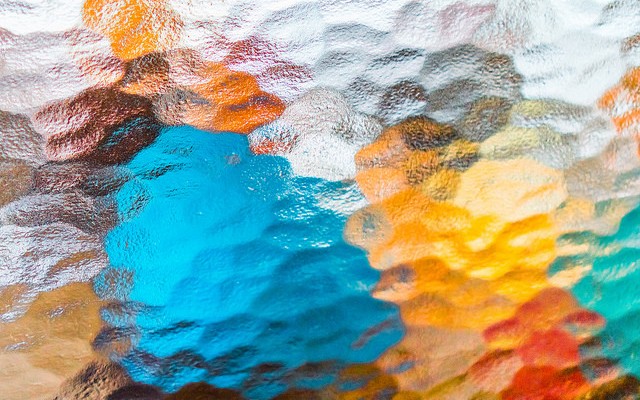I am a few years overdue for an eye test. This is bad, because I have the kind of extreme myopia that is prone to retinal detachment; which is to say, if I don’t keep an eye on my eyes, I might go blind. And even though optometrists tell me that the health of my eyes is surprisingly good for a person as short-sighted as I am, I can’t afford to dice with my sight.
I did anyway. I did because I am bad at self-care and because glasses with my prescription are so expensive. But a sudden flurry of ophthalmic migraines has finally prompted me to make an appointment. These are episodes in which flashing hexagonal threads, something like those old schematic illustrations of carbon molecules in science books for children, pulse across my vision. There is no pain, apparently because there are no nerve receptors inside the eye. They make me feel nauseous, and they certainly get in the way of seeing things.
The first time this happened, maybe in my twenties, I had an extreme episode: the flashing was so dazzling I couldn’t see anything else. For those ten minutes I panicked, convinced that something terrible had happened and that I was going blind.
I first got glasses when I was eight, ugly pink-rimmed spectacles with lenses like the bottom of bottles. I hated them. Once, to the ire of my parents, I even stamped on them and broke them into pieces. Those were the days when a girl with glasses was teased and mocked – I was routinely called ‘four eyes’ – and for me they were the visible symbol of everything I hated about myself.
In my early twenties I mostly didn’t wear them, even though I didn’t yet have contact lenses. Mostly I could fake my way through. I recognised friends by their gait, not their faces, although if they were on the other side of the street, I didn’t see them at all. I couldn’t read street signs, so I had to work out where I was by memorising routes.
When I first began to do public appearances like poetry readings, not wearing glasses was actually useful, because I couldn’t see the audience. Being looked at by many people terrified me; I suspect that part of me believes that visibility is profoundly perilous. I still find public appearances difficult and exhausting, as if the gaze is a vampiric thing that sucks out all my energy, but being able to see people looking at me doesn’t frighten me anymore.
Glasses also revealed a visual world that I didn’t know existed: trees that thrust out into intricate branches tipped with individual leaves, legible blackboards, the detail of grass blades. I still remember that first day, sitting in the back of a car staring out the window in wonder at a world in focus.
Sight from the beginning was for me a relative thing. Perhaps this accounts in part for my sometimes worrying negative capability, the ability to hold different contradictory thoughts at the same time. I know that things can be at once blurred and unblurred, and that the difference between the two is a carefully ground pane of glass.
Perceiving the difference between the blurred and unblurred led to my realising that my vision changes all the time. I mostly tracked these shifts as emotional. Depression literally makes colours dull. Objects become insubstantial, as if their very existence is vertiginous. I have also had epiphanies where everything is deeply, profoundly coloured, where the sight of autumn leaves on a wet pavement is dazzling, burning auburn on a vibrant slate-grey, and the sky so deeply, translucent blue I can almost believe in heaven.
Sight in those moments seems to be a dimension of touch, the centre of all our physical senses. I am aware that light is touching the objects I see, that it bounces off me and makes me seen. Everything is connected, intimate.
But I also experience sight as an extension of the self that embraces the entire visible world. I can almost believe in Aquinas’ notion that the eye is made of water so that the attributes of light and colour may exist within the very eye itself. That vision is the ultimate sense with which we comprehend God.
But I don’t believe in God. And these anthropocentric optical theories – there are so many of them, all so elegant and yet so wrong – are very seductive. They underpin, even as they have been rendered ridiculous by modern optics, so many of our cultural assumptions about perception.
Mostly they reveal that vision is the least modest of the senses. Sight is, after all, the preferred sense of the coloniser, who ‘like stout Cortez … with eagle eyes … star’d at the Pacific’. It is what empowers the romantic traveller posed on top of a mountain in sublime thought, or the king in his tower commanding all he sees. It is the schematic map that overlays its reality of borders and roads across a landscape of scintillating micro-environments, erasing them. It is the alienated drone operator in his room, untouched by the ‘baser’ senses, blowing a body into oblivion.
Perhaps we should begin to better value the gradations of blindness. How they reveal modes of perception that are more intimate, less hierarchical. We need to place ourselves in our worlds more modestly. Vision is greedy.
Read the rest of Overland 231
If you enjoyed this piece, buy the issue




